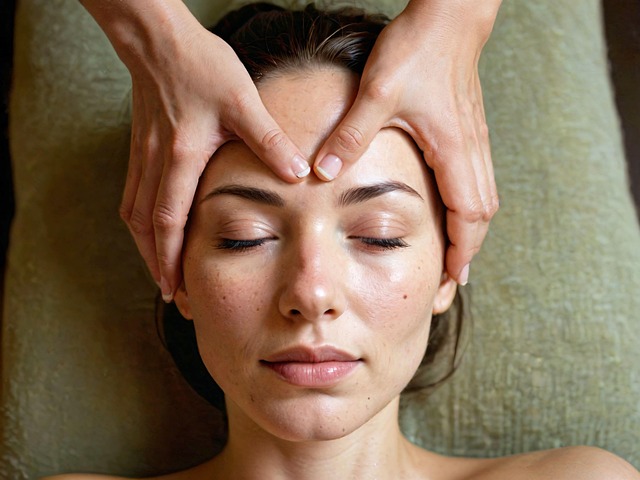Cold water immersion, through activities like cold showers or ice baths, briefly exposes the body to water below 59°F (15°C). This triggers physiological responses that release endorphins, reduce cortisol levels, and promote alertness without panic. Regular immersions strengthen the body's stress response, enhance resilience to anxiety, and increase calmness and clarity. Backed by personal accounts and scientific research, cold water immersion emerges as a holistic method for managing anxiety disorders, offering immediate relaxation and long-term mental well-being benefits. Incorporating brief cold exposures into daily routines can provide both immediate relief from anxiety and a sustainable foundation for improved mental health, emphasizing its effectiveness for relaxation.
Discover the powerful mental health benefits of cold water immersion for anxiety disorders. This therapeutic practice, known as cold plunging, has gained popularity for its ability to reduce stress and promote calm. Our article explores ‘cold water immersion for relaxation’ in depth, delving into the science behind it, personal testimonies, and practical tips for integrating this natural remedy into your routine for long-term mental well-being.
Understanding Cold Water Immersion and Its Impact on the Body
Cold water immersion, also known as a cold shower or plunge, involves briefly exposing oneself to cold water, typically below 59°F (15°C). This practice has gained popularity for its potential mental health benefits, especially in alleviating anxiety. When you immerse yourself in cold water, it triggers a series of physiological responses. The sudden cold stimulates your nervous system, releasing endorphins, often referred to as ‘feel-good’ hormones, which can reduce stress and improve mood. This reaction is part of the body’s natural fight or flight response, but unlike stressful events that can prolong anxiety, cold water immersion offers a safe and controlled way to induce this response, allowing for rapid relaxation.
Moreover, cold water has anti-inflammatory properties, which can help lower cortisol levels—a hormone often associated with prolonged stress and anxiety disorders. Regular cold water immersions may strengthen your body’s natural stress response, making you more resilient to anxious feelings. Many individuals report a heightened sense of calm and clarity after a cold plunge, indicating its potential as a powerful tool for managing anxiety symptoms and promoting overall well-being through relaxation techniques.
The Science Behind Cold Plunges and Anxiety Reduction
The science behind cold plunges and their impact on anxiety reduction is both fascinating and promising. When a person subjects themselves to cold water immersion, whether through a cold shower or a dip in an ice bath, it triggers a series of physiological responses that can have profound effects on mental health. One key mechanism is the release of norepinephrine, a neurotransmitter often referred to as the “fight or flight” hormone, which can help regulate stress and anxiety levels. Additionally, cold water immersion has been shown to increase noradrenaline, promoting alertness without the associated feelings of panic that can accompany anxiety disorders.
This therapeutic effect is also linked to the body’s natural response to cold, which includes the constriction of blood vessels in the extremities. This process redirects blood flow to vital organs, a mechanism known as vasoconstriction. As a result, individuals may experience an increased sense of calm and relaxation after a cold plunge, contrasting the heightened stress often associated with anxiety disorders. Furthermore, studies suggest that regular exposure to cold water can stimulate the release of endorphins, our body’s natural mood lifters, contributing to a healthier mental state and enhanced resilience against anxiety symptoms.
Personal Testimonies: Real-Life Experiences with Cold Water Therapy
Cold water immersion has gained popularity as a holistic approach to managing anxiety disorders, and numerous individuals have shared their transformative experiences. Personal testimonies from those who have tried cold plunges offer compelling evidence of its effectiveness in promoting mental well-being. Many people report feeling an immediate sense of calm and reduced stress levels after immersing themselves in cold water.
One such account is that of Sarah, who struggled with generalized anxiety disorder. She described her first cold shower as “a challenge” but noted that the experience left her feeling invigorated and grounded. Over time, regular cold water immersion became a crucial part of her self-care routine, helping her to manage anxiety symptoms and improve overall relaxation. Similar stories are shared across online forums, highlighting the potential of this simple therapy in providing an accessible and natural remedy for anxiety relief.
Integrating Cold Plunges into Your Routine for Long-Term Mental Well-being
Integrating cold water immersion into your routine can be a powerful tool for long-term mental well-being, particularly when dealing with anxiety disorders. The practice of cold plunges, such as taking a cold shower or immersing yourself in ice-cold water, triggers a series of physiological responses that have been shown to reduce stress and promote relaxation. When you expose your body to cold, it initiates a process called “cold shock response,” which releases endorphins, often referred to as the “feel-good” hormones, known for their calming effects on the mind.
Over time, regular cold water immersion can enhance your resilience to stressful situations. It conditions your body and mind to respond more calmly under pressure, thereby reducing the intensity of anxiety symptoms. Moreover, this simple yet effective practice supports better sleep hygiene, improves mood, and increases overall life satisfaction. By incorporating brief periods of cold exposure into your daily routine, you’re not only seeking immediate relief from anxiety but also fostering a sustainable foundation for mental health.
Cold water immersion has emerged as a powerful tool for managing anxiety disorders, offering a natural and effective method of achieving mental well-being. By understanding the science behind its impact on the body and mind, individuals can harness the benefits of this ancient practice to enhance their daily routines. Personal testimonies highlight the transformative power of cold plunges, providing real-world evidence of their effectiveness in reducing anxiety and promoting relaxation. Integrating regular cold water immersion into your self-care regimen can be a game-changer for managing stress and fostering long-term mental health. So, why not take the plunge and experience the calming effects of cold water for yourself?
